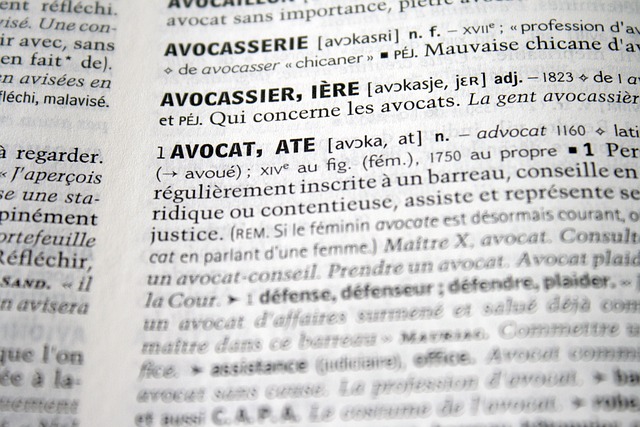Youth DUI (Driving Under the Influence) poses a significant challenge within the youth justice system, with severe consequences and unique considerations for young offenders. Comprehensive strategies such as education, intervention, and support systems are crucial to address this issue. Successful Youth DUI Prevention Programs focus on raising awareness, promoting responsible decision-making, and providing alternatives to underage drinking and driving. These programs aim to reduce instances of Youth DUI, ensuring fair treatment while fostering safety and accountability among peers. Community engagement is vital, offering tailored support and insights specific to each neighborhood's needs, thereby preventing Youth DUI, cultivating responsibility, and building trust for effective interventions.
Youth justice demands equitable treatment, especially regarding drunk driving cases. This article explores the intricate challenges of Youth DUI (Drunk Driving Under Influence), its profound impact on vulnerable youth, and the critical need for fair justice systems. We delve into effective strategies, highlighting successful Youth DUI prevention programs that foster positive change. By examining community engagement and support, we uncover sustainable solutions to combat this issue, ensuring a safer future for our young people and promoting robust Youth DUI prevention initiatives.
- Understanding Youth DUI: The Challenge and Impact
- The Need for Fair Treatment in Justice Systems
- Effective Youth DUI Prevention Programs: Strategies and Success Stories
- Promoting Positive Change: Community Engagement and Support
Understanding Youth DUI: The Challenge and Impact

Youth DUI, or Driving Under the Influence, poses a significant challenge in the pursuit of fair treatment within the youth justice system. It is a complex issue that demands attention due to its severe consequences and unique considerations regarding young offenders. The impact of Youth DUI extends beyond the immediate violation; it often reflects deeper societal and environmental factors contributing to risky behavior.
Addressing this problem requires comprehensive strategies, including education, intervention, and support systems. Many communities have implemented successful Youth DUI Prevention Programs that focus on raising awareness, promoting responsible decision-making, and providing alternatives to underage drinking and driving. These programs aim to reduce the instances of Youth DUI, not only ensuring fair treatment for young people caught in these situations but also fostering a culture of safety and accountability among their peers.
The Need for Fair Treatment in Justice Systems

In any justice system, ensuring fair treatment for all individuals, especially young people, is of utmost importance. The youth justice system plays a crucial role in shaping the future of at-risk adolescents and preventing them from engaging in criminal activities. Unfortunately, disparities often exist, with marginalized youth facing systemic barriers that impact their access to resources and equal opportunities.
Youth DUI Prevention Programs are an excellent example of initiatives aimed at promoting fair treatment. These programs focus on educating young people about the dangers of alcohol consumption and driving, targeting high-risk demographics to reduce underage drinking and subsequent legal entanglements. By implementing such measures, the justice system can intervene early, diverting youth from a path of criminal behavior and offering them guidance and support tailored to their needs.
Effective Youth DUI Prevention Programs: Strategies and Success Stories

Youth DUI (Drunk Driving Underage) prevention programs play a pivotal role in ensuring fair treatment and safeguarding young lives. Effective strategies focus on education, intervention, and support. These programs often incorporate interactive workshops, peer mentoring, and community outreach to raise awareness about the dangers of drinking and driving at a young age. By engaging teens in discussions about responsible decision-making and providing alternative activities, these initiatives aim to reduce risk behaviors.
Success stories from various regions highlight the power of collaborative efforts between schools, law enforcement, and local organizations. For instance, some programs have implemented specialized driver training simulations, allowing youths to experience the repercussions of impaired driving firsthand. Others focus on promoting positive alternatives, such as designated drivers or alcohol-free social events, fostering a culture of responsible choices among peers. These comprehensive approaches have led to significant decreases in youth DUI incidents and fatalities, offering valuable insights for replicating successful models across different communities.
Promoting Positive Change: Community Engagement and Support

Community engagement is a powerful tool in promoting positive change within youth justice systems, especially when it comes to addressing issues like Youth DUI Prevention Programs. By involving local communities, organizations, and individuals, these programs can gain invaluable support and insight. Active community participation ensures that the initiatives are tailored to meet the unique needs of each neighborhood, making them more effective and sustainable.
When communities come together, they can raise awareness about the dangers of underage drinking and driving, offer educational resources, and provide a network of support for at-risk youth. This collective effort not only helps in preventing Youth DUI but also fosters a sense of responsibility and empathy among young people. Engaging with community members allows for the development of trust and encourages open dialogue, ensuring that any interventions are well-received and have a lasting impact.
Youth justice systems must strive for fair treatment, especially when addressing issues like Youth DUI. By implementing effective prevention programs that engage communities and foster support, we can significantly reduce these incidents. The strategies outlined in this article offer a roadmap towards positive change, ensuring a safer and more just future for our youth. Additionally, recognizing the impact of Youth DUI and its challenges is crucial, as it empowers us to create meaningful solutions and advocate for better outcomes.






